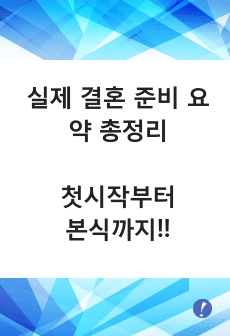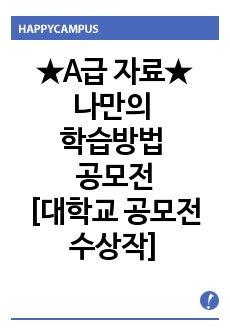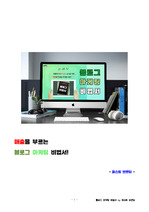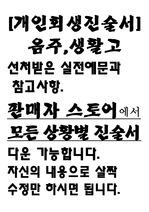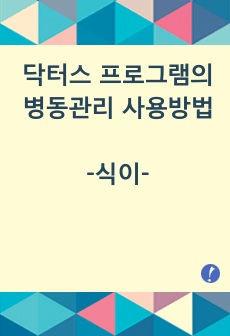일본의 『과학교육연구』 학술지를 통해 본 과학교육 연구 동향 : 2000-2005
* 본 문서는 배포용으로 복사 및 편집이 불가합니다.
서지정보
ㆍ발행기관 : 한국일본교육학회
ㆍ수록지정보 : 한국일본교육학연구 / 14권 / 1호
ㆍ저자명 : 이면우
ㆍ저자명 : 이면우
한국어 초록
이 연구는 2000년부터 2005년 사이에 일본과학교육학회에서 간행한 학회지 『과학교육연구』에 게재된 과학교육 관련 논문의 연구 동향을 파악하기 위한 것이다. 여기에서는
총 29권의 학회지에 게재된 243편의 논문 중 과학교육에 관련된 논문인 146편을 분석하
였다. 일본과학교육학회의 『과학교육연구』는 연평균 5호, 매년 40편 정도의 논문을 발
행하였다. 이 중 과학교육 관련 논문은 1년에 24편 정도였다. 논문에 참여한 연구자의 수
는 2명 이하인 경우가 107편(73.3%)으로 대다수를 차지한다(단독 저자, 54편 ; 2명의 저
자, 53편). 연구의 대상은 인적 자원을 다룬 논문이 88편(60.3%)이었다. 연구 방법에서 가
장 높은 비율을 차지하는 것은 조사연구(44편, 30.1%)이었다. 과학교육학 연구 영역을 보
면 과학 분과별 교육을 다루기보다는 과학교육 일반을 다룬 논문이 많았다(56편, 38.4%).
교과별로는 물리교육(23편, 15.8%)과 화학교육(23편, 15.8%)이 비교적 많은 편이었다. 과
학교육학 연구의 범주로 분류하면 교수학습론을 다룬 논문이 51편(34.9%)으로 가장 많았
다. 『과학교육연구』에서 찾을 수 있는 일본 특유의 연구 동향은 다음과 같다. 첫째, 교
실 현장에서 직접 이용할 수 있는 교재개발이 많다는 점이다. 관련하여 동일 저자에 의하
여 특정 주제를 심화시키는 계속 연구 결과가 논문으로 발표되고 있다. 둘째, 특정 주제
를 강조하는 특집호를 1년에 한번 정도 기획하여 제공하고 있다. 셋째, 일본만이 가지는
고유한 연구 영역을 개척하고 있다. 대표적인 사례로는 일본 과학교육의 역사를 다룬 일
련의 연구를 들 수 있다. 넷째, 과학교육 연구 분야에서도 국제화를 지향하는 노력을 하
고 있다. 다섯째, 일본의 과학교육 연구는 우리나라의 과학 교과뿐만 아니라, 수학교육,
기술 및 가정교육, 컴퓨터 교육, 교육공학 등을 포함한 연구를 의미하였다.
영어 초록
The purpose of this study was to investigate research trends of science educationin Japan. It was focused Kagaku-Kyouiku-Kenkyu (科学教育研究 the Journal of
Science Education in Japan) from 2000 to 2005. A total of 146 articles related with
science education were analyzed.
It was developed by analytic framework for investigation, which had 6 domains:
1) types of article and issues by each year, 2) numbers of authors, 3) resources of
researches, 4) research method, 5) domains of science subjects, and 6) categories of
science education research. After, it was reported typical characteristics of Japan's
research for science education by some selected articles.
The Journal of Science Education in Japan has published 4 or 5 issues each year,
and each publication by year contained about 40 articles. However, there were about 24
articles related in science educational research. The numbers of single author of article
were 54 cases (37.0%), and those of two researchers were 53 cases (36.3%). Total
articles less then 2 authors were 107 cases (73.3%). In the aspect of resources for
science education research, using human resource were 88 articles (60.3%), and non
human resource were 58 papers (39.6%). The most using research method was the
survey method (30.1%). Especially, action research was also high rate method (24.0%) in
the journals. In domain of science subjects, the highest rate was the papers for general
science education (56 cases, 38.4%). Relatively, physics education papers (23 cases,
15.8%) and chemistry education articles (23 cases, 15.8%) were also high rate rather
than biology education (14 cases, 9.6%) or earth science education (10 cases, 6.8%). The
most adapting category of science education research was teaching-learning theory (51
papers, 34.9%), and the second was development research (33 papers, 22.6%).
The typical characteristics of Japan's research trends for science education were
followed. Firstly, it was emphasized and published the article for teaching and learning
materials, which could use directly in classroom. Sometimes, there were typical
appearances that the same authors announced same themes by deepening contents.
Secondly, it was noted that some topics of science education offered special edition by
annual, for example, science curriculum or science museum and so on. Thirdly, it was
developed Japan's unique research domains, for example, historical research for the
history of science education in Japan. Fourthly, in study of science education, it was
emphasized for the multi-cultural science education. Those papers were pointed not
only advanced nations like UK or US, but also Asia or Africa regions. And finally, the researches of science education of Japan were included science subject education,
technology and home economics education, mathematics education and educational
engineering.










